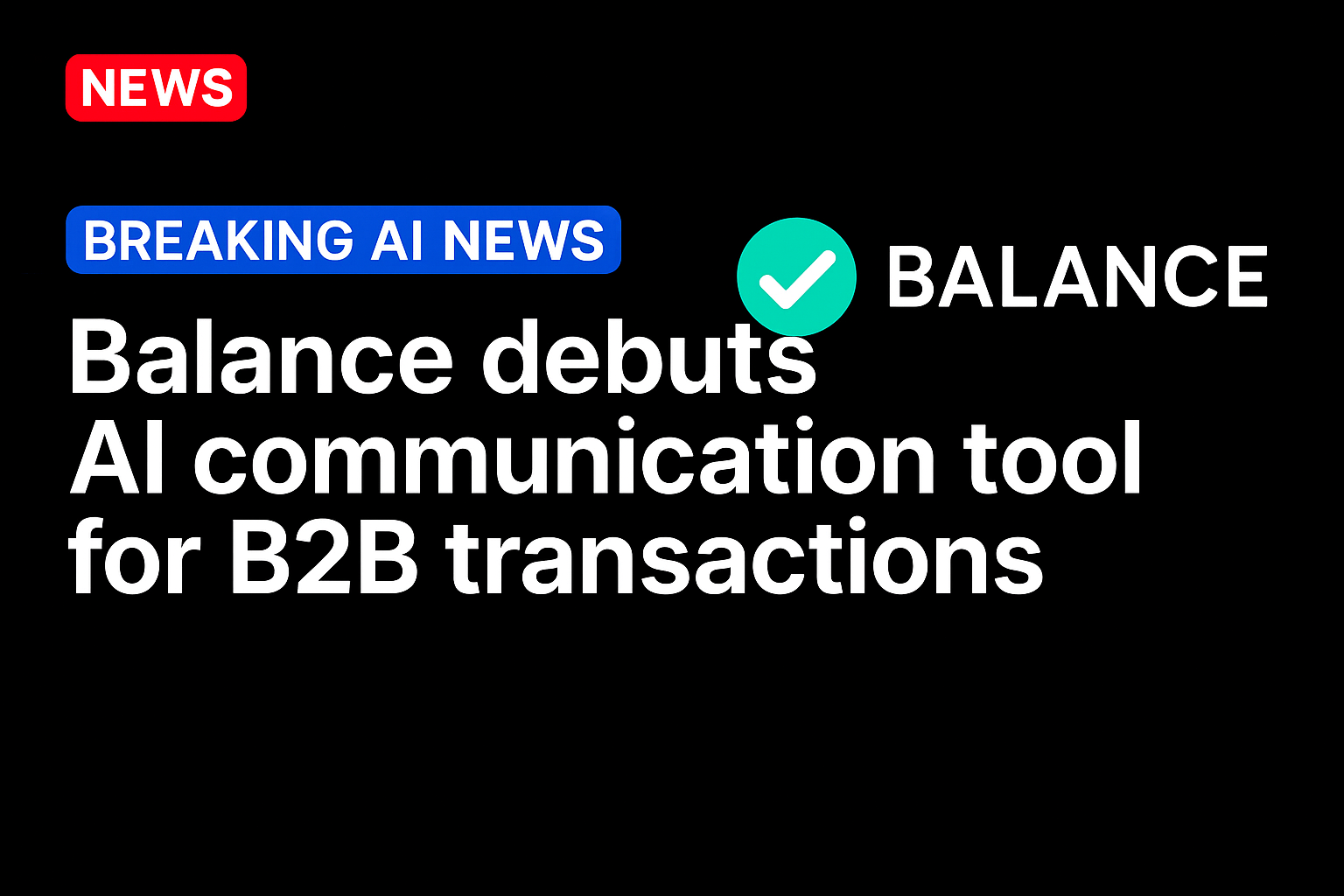
B2B commerce infrastructure platform Balance has a new tool for customers’ artificial intelligence (AI) agents.
The Balance Model Context Protocol (MCP) Server, now in beta, lets the AI communicate with Balance’s payments, credit, and receivables APIs, the company said in a Wednesday (Oct. 29) news release.
By connecting Balance to large language models through MCP, merchants can tap into and act on real-time buyer intelligence leaving their preferred AI chat interface, the release added.
“Agentic B2B commerce brings intelligence and autonomy to transactions between businesses,” said Bar Geron, Balance co-founder and CEO. “As B2B eCommerce continues expanding, incorporating the latest developments in AI is crucial to ensure that merchants and marketplaces can keep up.”
According to the release, the MCP Server lets AI agents used by customers securely retrieve and act on live data using natural language prompts, from checking a buyer’s credit status to generating qualification links.
It lets merchants do things like review payment history, open invoices, or order trends ahead of a customer call, or trigger onboarding, invoicing, and payment links from the chat interface.
“B2B commerce shouldn’t be slowed down by outdated and disjointed systems,” added Yoni Shuster, Balance co-founder and chief technology officer. “When AI agents can handle data retrieval and operational tasks instantly, businesses sell more, suppliers get paid faster, and cash flow becomes more predictable.”
PYMNTS took a closer look at the role agentic AI plays in the B2B world last week in a conversation with Nabil Manji, senior vice president and head of FinTech growth and financial partnerships at Worldpay.
“AI is going to have an impact widely across what I would call the procure-to-pay process,” Manji, told PYMNTS during a discussion for the B2B PYMNTS 2025 event, “B2B.AI: The Architecture of Intelligent Money Movement.”
“If you think about reconciliation, it’s about as repetitive and unambiguous of a task as you can get in payments. … It’s a perfect use case for AI,” he added.
Throughout the past decade, automation helped companies do away with repetitive finance tasks. But traditional software still needed rules written by humans and required human intervention for exceptions.
“Agentic AI flips that model. Instead of simply following scripts, these agents learn from data patterns, anticipate liquidity needs, reconcile mismatches at scale, and act in near real time,” PYMNTS wrote. “This makes them particularly well-suited for B2B payments, where vast transaction volumes, timing sensitivities, and cross-border flows can overwhelm manual oversight.”
Source: https://www.pymnts.com/

